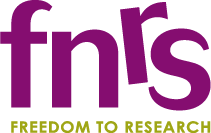Philosophy of language in the Brentanian tradition
Conference, University of Liège, September 17-19, 2018.
» Poster [185 Kb]
» Folder for speakers [208 Kb]
Call-for-papers
Proposals (title and abstract, maximum 2000 words) are invited from senior researchers as well as graduate students, and must be sent to Charlotte Gauvry (c.gauvry[a]uliege.be) and Sébastien Richard (sebastien.richard[a]ulb.ac.be) by April 15th, 2018. All proposals on the philosophy of language within the Brentanian tradition (school of Brentano, realistic phenomenology, school of Graz, school of Lvov-Warsaw, school of Berlin, school of Prague) will be considered. Please note that presentations will last 45 minutes (followed by 15 minutes discussion) and can be given either in English or in French.
Conference presentation
Franz Brentano is at the root of a long-lasting philosophical tradition spread by his students and, then, by his students’ students between the late 19th century and World War II. This influence gave birth to a large number of philosophical schools or movements: the school of Brentano itself (Twardowski, Ehrenfels, Meinong, the early Husserl, Stumpf, Marty), the Lvov-Warsaw school (Łukasiewicz, Leśniewski, Kotarbiński, Ajdukiewicz, Dąmbska, Tarski), the realistic phenomenology movement (Ingarden, Pfänder, Stein, Scheler and Reinach) and the schools of Graz (Ameseder, Höfler, Mally, Vitasek, Martinak) and Prague (Kraus, Kastil).
It is common knowledge that these schools critically contributed to the rise of descriptive and phenomenological psychology, and gave rise to significant works in the fields of ontology and value theory. By contrast, comparatively little is known about the contribution of Brentanian philosophers to the philosophy of language. Important exceptions include Anton Marty’s – Brentano’s so-called “Minister for Linguistic Affairs” – and Husserl’s considerations on language. However, other representatives of the Brentanian tradition are deeply concerned with language in itself or as a mean to solve philosophical problems.
Interestingly, both the Brentanian and analytic traditions consider that linguistic analysis cannot be exhausted by a grammatical analysis of linguistic utterances. According to both traditions, linguistic analysis has to investigate the “deep structures” of linguistic utterances. Only such a “deep” analysis can help solve philosophical problems, even when they do not manifest themselves immediately as linguistic problems. However, the status and characteristics these traditions confer to this “deep structure” differ in a significant way. Whereas the Brentanian tradition considers it as mental, the analytic tradition considers it as logical. On the Brentanian approach, indeed, linguistic analysis mainly consists in relating linguistic utterances to the mental acts – sometimes understood as an “inner form” – that are expressed by them. This psychological dimension explains why the Brentanian tradition was never involved in the “linguistic turn” which was endorsed by Wittgenstein or by the Oxonian philosophers of ordinary language.
This conference proposes to assess to what extent the Brentanian tradition involves an original research program in the field of the philosophy of language. Proposals on the following subjects in the Brentanian school will be welcome:
- Meaning theory:
- Subjective meaning and objective meaning (psychologism and anti-psychologism regarding meaning);
- Communicational and contextual dimensions of meaning;
- Inner form of language;
- Linguistic functions;
- The connection between linguistic expressions and mental acts, in particular mind/language parallelism;
- Categorematic and syncategorematic expressions, pure grammar;
- Linguistic analysis as a mean to solve philosophical puzzles;
- Nominalism;
- Indexical expressions;
- Common names and proper nouns;
- Utterance analysis;
- Linguistic fictions and paraphrases.
More generally, we are interested in all proposals regarding the question of language in the Brentanian tradition. The conference will focus on the entire tradition but proposals on only one or several specific authors will also be accepted.
Moreover, we will also consider proposals which regard not only the heirs of Brentano but also its philosophical predecessors (as, for instance, Bolzano) and the ones who discussed some Brentanian theses regarding language, as Bühler or Landgrebe did.
Transversal contributions, non-investigated questions and work on less-researched philosophers within the Brentanian tradition are encouraged.
Speakers
- Laurent Cesalli (Université de Genève)
- Arkadiusz Chrudzimski (Uniwersytet Szczeciński)
- Denis Fisette (Université du Québec à Montréal)
- Guillaume Fréchette (Universität Salzburg)
- Janette Friedrich (Université de Genève)
- Charlotte Gauvry (FNRS/Université de Liège)
- Bruno Leclercq (Université de Liège)
- Claudio Majolino (Université de Lille)
- Olivier Malherbe (Université libre de Bruxelles)
- Kevin Mulligan (Università della Svizzera italiana, Lugano)
- Sébastien Richard (Université libre de Bruxelles)
- Denis Seron (FNRS/Université de Liège)
- Hamid Taieb (Fondation Humboldt/Hamburg)
- Maria Van der Schaar (Universiteit Leiden)
- Basil Vassilicos (University of Limerick)
- Jan Woleński (Uniwersytet Jagielloński)
Scientific organizers
Main organizers: Charlotte Gauvry, Sébastien Richard.
Co-organizers: Arnaud Dewalque, Antonino Mazzù.
Contact:
c.gauvry[a]uliege.be • sebastien.richard[a]ulb.ac.be



